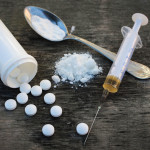Use of syringe services programs (SSPs), which provide an array of harm reduction services, has risen considerably among injection drug users (IDUs) over the past decade. However, a worrisome proportion of IDUs still share needles with others, putting them at risk of HIV and hepatitis C virus (HCV) transmission.
“Until now, the nation has made substantial progress in preventing HIV among people who inject drugs, but this success is threatened,” said Jonathan Mermin, MD, MPH, director of the CDC’s National Center for HIV/AIDS, Viral Hepatitis, STD, and TB Prevention. “Syringe services programs work, and their expansion is pivotal for progress in the coming decades.”
The Centers for Disease Control and Prevention (CDC) conducted a study of SSP use based on National HIV Behavioral Surveillance interviews of IDUs in 22 U.S. cities with a high HIV prevalence. The report also factored in National HIV Surveillance System data on HIV infection trends.
The CDC researchers found that in 2015, 54 percent of IDUs reported using an SSP during the previous year, up from 36 percent in 2005. However, about the same proportion, 36 percent in 2005 and 33 in 2015, reported having shared a needle in the past year.
HIV diagnoses declined among IDUs between 2008 and 2014, but the rate has leveled off in recent years. Between 2005 and 2015, the rate of syringe sharing dropped by 34 percent among Blacks and 12 percent among Latinos, while remaining unchanged among whites.
The racial composition of those new to injection drug use has changed dramatically over the last decade, with whites making up an increasing proportion of new users as the opioid addiction epidemic sweeps the nation. In 2005, Blacks and whites both comprised 38 percent of new users. By 2015, whites and Blacks made up a respective 54 percent and 19 percent of new IDUs.
“The prescription opioid and heroin epidemics are devastating families and communities throughout the nation, and the potential for new HIV outbreaks is of growing concern,” CDC director Tom Frieden, MD, MPH, said in a press release. “Our goal is for people to live long enough to stop substance use and not contract HIV or other serious infections while injecting—SSPs can help people accomplish both.”
To read the report click here.
To read a press release about the report, click here.
To read a CDC fact sheet about HIV and injection drug use, click here.







Comments
Comments